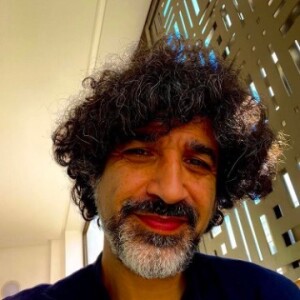
- Podcast Features
-
Monetization
-
Ads Marketplace
Join Ads Marketplace to earn through podcast sponsorships.
-
PodAds
Manage your ads with dynamic ad insertion capability.
-
Apple Podcasts Subscriptions Integration
Monetize with Apple Podcasts Subscriptions via Podbean.
-
Live Streaming
Earn rewards and recurring income from Fan Club membership.
-
Ads Marketplace
- Podbean App
-
Help and Support
-
Help Center
Get the answers and support you need.
-
Podbean Academy
Resources and guides to launch, grow, and monetize podcast.
-
Podbean Blog
Stay updated with the latest podcasting tips and trends.
-
What’s New
Check out our newest and recently released features!
-
Podcasting Smarter
Podcast interviews, best practices, and helpful tips.
-
Help Center
-
Popular Topics
-
How to Start a Podcast
The step-by-step guide to start your own podcast.
-
How to Start a Live Podcast
Create the best live podcast and engage your audience.
-
How to Monetize a Podcast
Tips on making the decision to monetize your podcast.
-
How to Promote Your Podcast
The best ways to get more eyes and ears on your podcast.
-
Podcast Advertising 101
Everything you need to know about podcast advertising.
-
Mobile Podcast Recording Guide
The ultimate guide to recording a podcast on your phone.
-
How to Use Group Recording
Steps to set up and use group recording in the Podbean app.
-
How to Start a Podcast
-
Podcasting
- Podcast Features
-
Monetization
-
Ads Marketplace
Join Ads Marketplace to earn through podcast sponsorships.
-
PodAds
Manage your ads with dynamic ad insertion capability.
-
Apple Podcasts Subscriptions Integration
Monetize with Apple Podcasts Subscriptions via Podbean.
-
Live Streaming
Earn rewards and recurring income from Fan Club membership.
-
Ads Marketplace
- Podbean App
- Advertisers
- Enterprise
- Pricing
-
Resources
-
Help and Support
-
Help Center
Get the answers and support you need.
-
Podbean Academy
Resources and guides to launch, grow, and monetize podcast.
-
Podbean Blog
Stay updated with the latest podcasting tips and trends.
-
What’s New
Check out our newest and recently released features!
-
Podcasting Smarter
Podcast interviews, best practices, and helpful tips.
-
Help Center
-
Popular Topics
-
How to Start a Podcast
The step-by-step guide to start your own podcast.
-
How to Start a Live Podcast
Create the best live podcast and engage your audience.
-
How to Monetize a Podcast
Tips on making the decision to monetize your podcast.
-
How to Promote Your Podcast
The best ways to get more eyes and ears on your podcast.
-
Podcast Advertising 101
Everything you need to know about podcast advertising.
-
Mobile Podcast Recording Guide
The ultimate guide to recording a podcast on your phone.
-
How to Use Group Recording
Steps to set up and use group recording in the Podbean app.
-
How to Start a Podcast
-
Help and Support
- Discover

Maghrib in Past & Present | Podcasts
Education

Episode 185: Agricultural Modernization in the MENA Region
The agrarian and food crisis in the Middle East and North Africa (MENA) have re-emerged vigorously to the attention of global development agencies and governments in coincidence with the Russia-Ukraine war. The food crisis has been interpreted through a number of tropes, including Malthusian, environmentally determinist, security and development economics approaches. Within the dominant mainstream discourse, the MENA region is often depicted as a homogenous geographical area characterized by dryness, infertile lands and poor water resources. How did imperialism, colonialism and the Cold War influence the MENA food systems? What were the effects of agrarian modernizations, trade liberalization and neoliberalism on the agricultural systems in the region? These are some questions that this presentation tries to answer using a geographical and historical-comparative analysis, through a food regimes lens. Understanding contemporary social relations dynamics cannot be limited to the recent period. Agriculture and food in the MENA region are anchored in the history of power relations ruled by flows of capital and the shaping of ecological transformations during the longue durée of capitalism and its corresponding modes of control and regulation.
Giuliano Martiniello is Associate Professor of Political Science and Political Economy at the Faculy of Law, Political and Social Sciences, Université Internationale de Rabat and Adjunct Associate Professor at the Faculty of Agricultural and Food Sciences, American University of Beirut. Prior to joining UIR, he was Assistant Professor at the American University of Beirut (2015-2020), Research Fellow at the Makerere Institute of Social Research, Makerere University (2011-2015), and Post-Doctoral Research Fellow at the Centre for Civil Society, University of KwaZulu-Natal (2012-2013). He got his PhD in Politics at the School of Politics and International Studies of the University of Leeds (2011). He is broadly interested in the political economy, political sociology and political ecology of agrarian and environmental change. His research interests include land regimes, food and farming systems, large-scale land enclosures and contract farming, conservation and deforestation, rural social conflicts and agrarian movements in Africa and the Middle East. He has published articles in a number of top-ranking international journals such as World Development, Journal of Peasant Studies, Journal of Agrarian Change, Geoforum, Land Use Policy, Food Secuirty, Globalizations, Agrarian South: a Journal of Political Economy; Third World Quarterly, Review of African Political Economy, among others. He is Contributing Editor of the Review of African Political Economy and Associate Editor of Agrarian South: A Journal of Political Economy. He is co-editor of the book Uganda: The Dynamics of Neoliberal Transformation, London, Zed Books (2018).
This episode is part of the CAORC and Carnegie Corporation of New York program "The Maghrib From the Peripheries: Property, Natural Resources and Social Actors in the Maghrib". It was recorded via zoom on the 19th of October, 2023 by the American Institute for Maghrib Studies (AIMS).
Edited by Hayet Yebbous Bensaid, Librarian, Outreach Coordinator, Content Curator (CEMA).
More Episodes
 2025-04-17
2025-04-17
 72
72
 2025-03-20
2025-03-20
 107
107
 2025-03-06
2025-03-06
 98
98
 2025-01-23
2025-01-23
 136
136
 2025-01-09
2025-01-09
 184
184
 2024-12-05
2024-12-05
 136
136
 2024-11-14
2024-11-14
 136
136
 2024-11-07
2024-11-07
 129
129
 2024-10-24
2024-10-24
 151
151
 2024-09-26
2024-09-26
 175
175
 2024-07-10
2024-07-10
 218
218
 2024-06-27
2024-06-27
 181
181
Create your
podcast in
minutes
- Full-featured podcast site
- Unlimited storage and bandwidth
- Comprehensive podcast stats
- Distribute to Apple Podcasts, Spotify, and more
- Make money with your podcast
It is Free
- Privacy Policy
- Cookie Policy
- Terms of Use
- Consent Preferences
- Copyright © 2015-2025 Podbean.com



